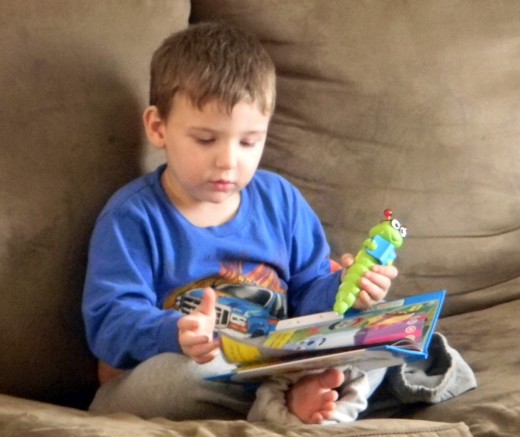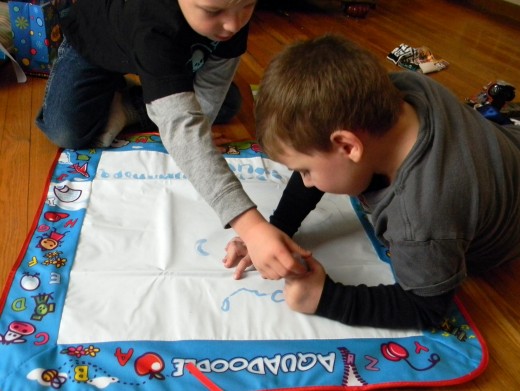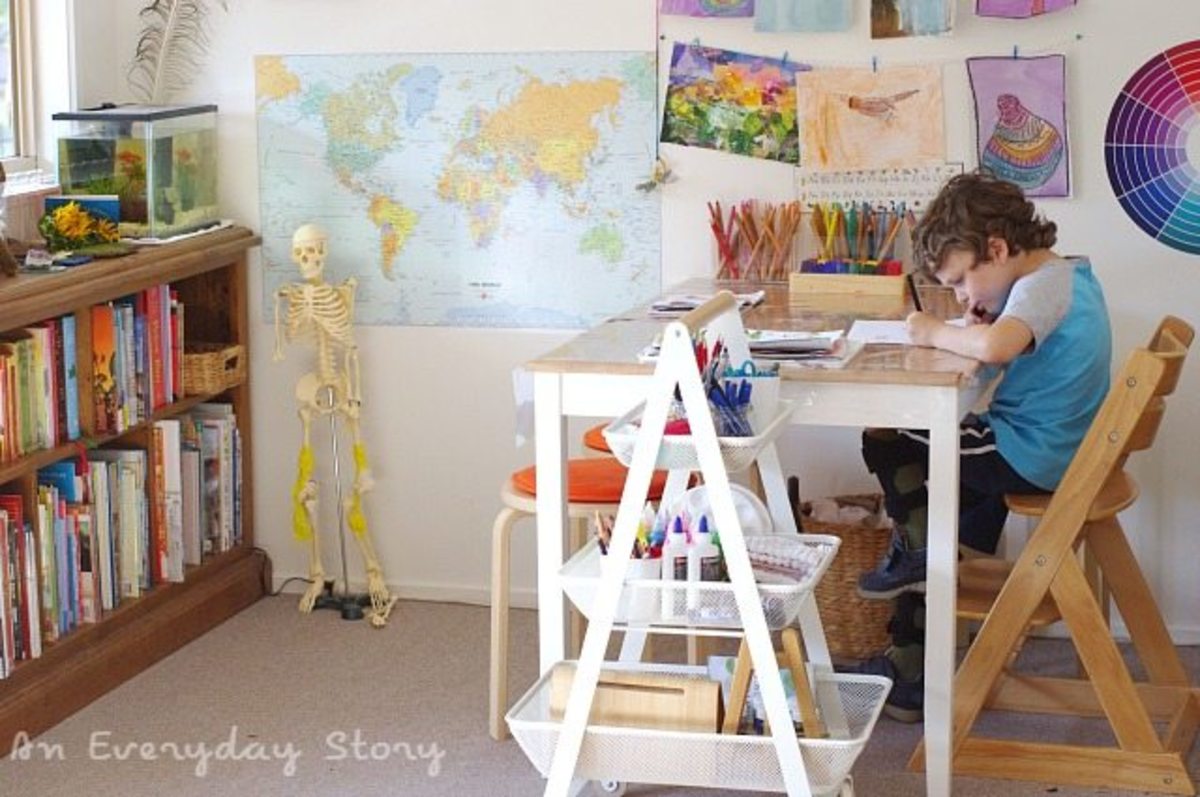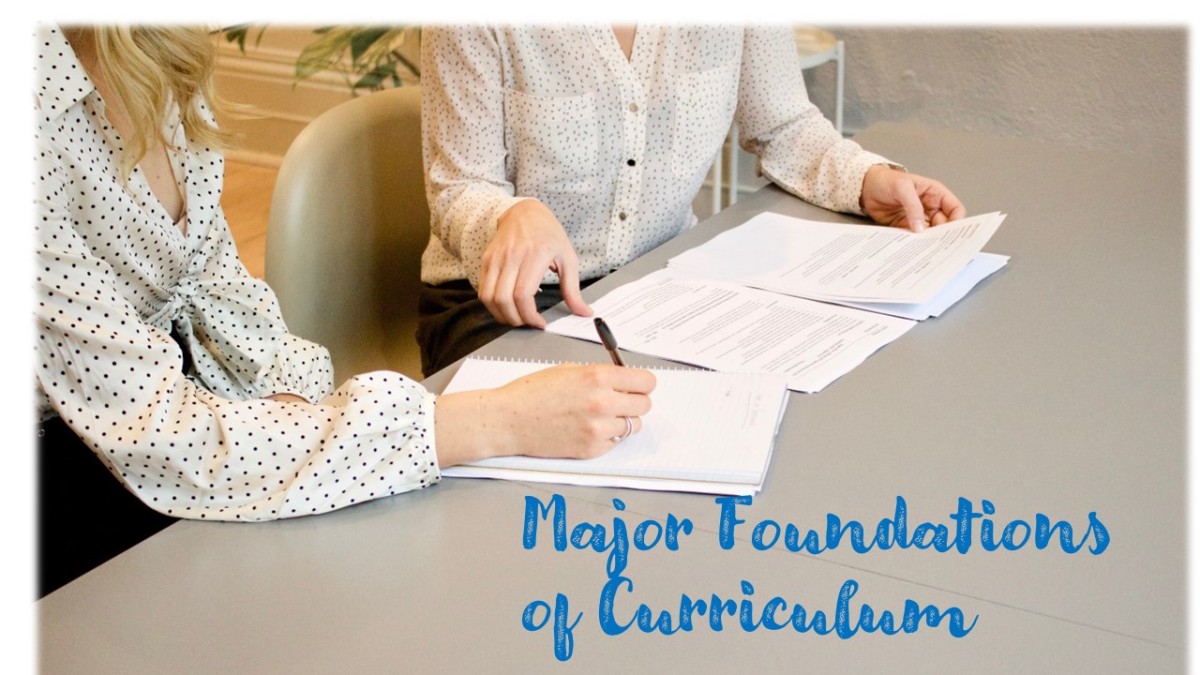What Is Unschooling? My Exploration of a Unique Homeschooling Theory

Answer to the Hubpages Question: What Is Unschooling?
When my daughter was first diagnosed with absence seizures she was being sent home from school on a regular basis and having a lot of trouble staying awake and focusing during the first half of the day. I started looking into homeschooling, just in case she was unable to pull through and be successful in public school. During my research I came across something known as “unschooling.” This technique of homeschooling is also commonly referred to as “natural learning,” “independent learning” and “experience based learning.”
I looked into all forms of homeschooling and theories on how to successfully operate a home school, with a lot of time spent looking into the theory of unschooling. I found that it is not a formula of homeschooling, since there are no rules or guidelines that you must follow to implement the idea in your home. I also found that it is far from the lazy way of teaching a child at home. That is a common impression of those who do not understand unschooling, but when done correctly, parents often put more effort into unschooling than they would a standard home school curriculum!
What Is Unschooling?
Unschooling is a method of allowing children to learn what they want to learn in a natural manner. They are encouraged to delve deeply into subjects that catch their interest, but these interests are not termed “subjects.” Schools teach knowledge grouped into subjects, and those subjects often feel confining to children. This is why many children start to hate certain subjects and fight against doing homework in those subjects. This is especially true for children routinely receiving low grades in a particular subject.
Since unschooled children are encouraged to learn only what they are interested in and their lessons are not categorized, they do not fight against the learning process. They do not grow to hate areas of study simply because of their category. They simply learn and explore the world in a criticism-free environment.
Some unschooled children may not even know they have a weak area of learning, since they only actively study things they find fascinating on some level! Unschool parents see this as a great thing, because it allows children to remain confident in themselves. While public schools grade children harshly and send other signs that a child is not sufficient in some subjects, the unschooled home environment is uplifting and encouraging on all levels.
The question is whether unschooled children avoid areas of study that they find too challenging, or if they will naturally learn through the real world without highlighting a weakness. Is it possible that a child failing math in public school could pass a mathematics test on their grade level after learning in a natural, unschooled environment? Is it possible that the method of learning through textbooks and memorization is the problem, rather than the child being the problem? There hasn’t been enough research to know this for sure, but it is something to think about.

No Pressure!
To me, the biggest benefit of unschooling is the lack of pressure placed on the child. When my fourth grader has been in school all day then comes home with about an hour or two of homework, it does stress her out. It leaves her little time to go out and play. It makes her hate schoolwork!
Unschooled children have more free time and are able to study in their own time. They do just enough to keep their interest but not enough to stress them out on any given day. I do see how this could be beneficial to children, especially anxious, easily stressed children like my daughter.
Some other benefits of unschooling include the following:
- Parents can be more hands-on in the learning process.
- Children are home more often, where parents can supervise them closely.
- Children will learn more in-depth knowledge about subjects they take an interest in.
- Parents do not have to fight with children to get them to do their homework.
- Children learn to trust their own instincts and respect their own free will.
- It only has to be as expensive as you make it. Without the expense of curriculum and books, many parents find unschooling to be more affordable than traditional homeschooling. It can also be far more expensive than traditional homeschooling if parents choose to enroll children in competitive sports or educational programs outside of the home.
What is Unschooling Doing to/for Our Children?
Unschooling has not been without its critics:
- This method of teaching creates self-indulgent kids unprepared for the “real” world.
- This method of teaching is an easy out for lazy or uneducated parents who don’t want to or can’t school their children correctly.
- Not all children naturally have the ambition needed to actively study anything on their own with consistency.
- Most children tend to take interest in particular areas. This means their unschooling lessons could easily leave out areas of study that are important. This will eventually hold children back as they look for jobs or enter college.
- Ignoring the weaknesses of a child prevents them from improving.
- Very shy children are often attracted to unschooling, but will not have the desire to socialize with others on their own. Their shyness or potential social anxiety could be heightened, rather than defeated.
The biggest argument overall is that unschooled children are crippled, or somehow unprepared to handle the real world as adults. This may happen on an intellectual level with children that naturally want to explore some areas of study at the exclusion of some other areas.
It is asserted by many supporters of unschooling that children are naturally curious about the world and will learn better through self-guidance and exploration. Unfortunately, many parents know that not all children have the drive required to consistently study and learn when it is not being enforced or required of them. Could that change if these children were pulled out of school and placed in an unschooled environment? Maybe some of them would, but many would not have the inner drive or motivation to successfully unschool. Some may not even be interested in homeschooling.

Children may also become crippled by a self-indulgent attitude. The concern is that children unschooled from a young age or for many consecutive years will not learn to take direction from others, work as a group, or challenge themselves to do things that are difficult or uninteresting to them. They may not be able to hold down a job where they have to do as the boss says to earn their paycheck.
This is a valid concern, since the basic foundation of unschooling is to allow children to dictate what they learn, when they learn it, and how they learn it. Even parents that are actively involved in guiding their unschooled children will take a backseat to the desires and opinions of their child. This could very well create adults incapable or unwilling to do things that may not interest them personally. The lack of guidance and direction could be damaging in the long run.
The Middle Ground
There is a middle ground, which I discovered in my research. Many parents are providing solid lesson plans which their children are required to follow, but with the exception that children are encouraged to explore other things that are of interest to them. It is a fact that many homeschooled children can complete their work within a few hours a day, since they are not competing with other children for time and attention with their teacher. This leaves a lot of time for children to explore other things that interest them…unschool style!
Another way to do this is to create a “free” subject in the home school curriculum. Children can choose whatever they want to fill this slot, and the parent can create curriculum surrounding the chosen topic. The topic can always be changed at the whim of the child; they are in control of this free subject. This allows children some input into what they are learning and gives them a subject to look forward to each day.
This would not be considered real unschooling, since a set curriculum and probably testing is involved. Yet, it is a good middle ground for parents interested in unschooling who have concerns about the potential downfalls for their children in the long term.
A Good View of How Many Unschoolers are Finding that Middle Ground
What about the Paperwork?
The rules for documenting the homeschool environment differ from state to state. In most states, homeschooling parents are required to keep records of what their children are learning and how lessons are being delivered. Some states are even passing new laws that dictate how educated parents must be before they qualify to homeschool their children. The extent of documentation and testing required varies by state as well.
How do you document what a child is learning or ensure that a child is learning all objectives dictated by law when you are unschooling? This is a cloudy area of unschooling and I found it difficult to get straight answers. For the most part, I found three potential scenarios:
1. Some states do not require much documentation, so short statements about what children are learning is sufficient. Some states may not have objectives of what has to be learned in each grade, which makes it even easier.
2. Some states have loopholes, such as allowing home schools to register as private schools to escape the requirement of standardized testing or other legal requirements for home schools. These loopholes are not available in every state, in which case many parents resort to the last option listed below.
3. Lie! I never had a parent or organization tell me outright that they lie, but it is alluded to online in many forums. Home school parents simply take what their children choose to do at any given time and decide how it could fit objectives set out by their state. If this requires some stretching of the imagination, that doesn’t seem to be a problem.
Standardized testing laws seem to be the biggest problem for unschooling parents in some states. Since unschooling doesn’t typically require children to take tests on their knowledge, this is problematic when there are no loopholes to get out of this requirement. If there is a way out of it in every state, I was unable to find it.

The Bottom Line
I think there are some valid points to unschooling, but it has to be used with care. Even though children take the front seat in their learning process, parents have to remain active in the process as well. You cannot say you are unschooling and leave your child to their own creative devices entirely. You have to be there for guidance, assistance, and encouragement every step of the way. There is no place for laziness in unschooling.
I decided to leave my daughter in public school, since her seizure problem is under control. She is very shy and I wanted her to be challenged to overcome that on a daily basis. I worried that staying home would make that anxiety worse, or allow her to hide away. She is starting to blossom and leave the shyness behind, and I don’t think that would have happened had I pulled her out of school.
What is Unschooling from Your Perspective?
Do you have experience with unschooling? Do you know something about the topic that I have not mentioned in this hub? I am interested in learning from the advice and experience of others, so leave me a comment and add to the conversation!






